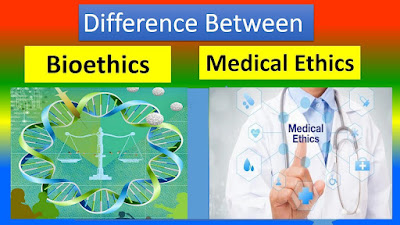Bioethics :
The rate of change in the globe is really rapid. Small hard drives that can store terabytes of data have replaced huge desktop computers as the norm in technology. Also, Medicine has advanced, allowing us to treat diseases with medication and making procedures more intricate.

Because More than 7 billion people now live on the planet, and we have managed to feed them all by increasing food production. Many of our greatest accomplishments are a result of advances in technology, medicine, and even our DNA. But these recent technical advancements have brought up moral conundrums.
Explanation :
How do we decide what is and is not acceptable? The study of bioethics examines ethical problems in the health sciences and evaluates technological and medical achievements. Also, It combines the thoughts of philosophers, medical professionals, attorneys, scientists, and public health specialists.
While they may all seem like authorities, bioethics applies to everyone, not just these specialists. Is using stem cells morally right? What applications do stem cells have? What constitutes the limit? Is this technology reliable? What about something like human genes, for example?
Do genetic changes render us less human? Does it have an impact on how we reproduce? What potential biological implications could this kind of technology have? Why is it okay to modify plant genes but not human ones?
.jpg)
Can doctors truly be replaced by AI? Can we have confidence that artificial intelligence will be used in medical procedures? How about other locations? What about research involving human subjects, then? How can we better understand how people behave, how diseases develop, how animals interact with their surroundings, and how ecosystems work together?
Effects :
What effects do these advances have on us, our environment, and the earth in general? Biologists focus on these kinds of issues. They establish what is morally correct and what offers the most advancements and breakthroughs while posing no threat to society.
These are challenging issues to resolve. But At NYU, we offer a place to explore these concepts, theories, and moral conundrums. To explore these concepts, we encourage creative thought and interdisciplinary, collaborative action among philosophers, physicians, attorneys, scientists, engineers, and public health specialists.
Also, We assist you in developing critical thinking abilities by utilizing the influence of numerous perspectives to comprehend the big picture and all available options.
0 Comments